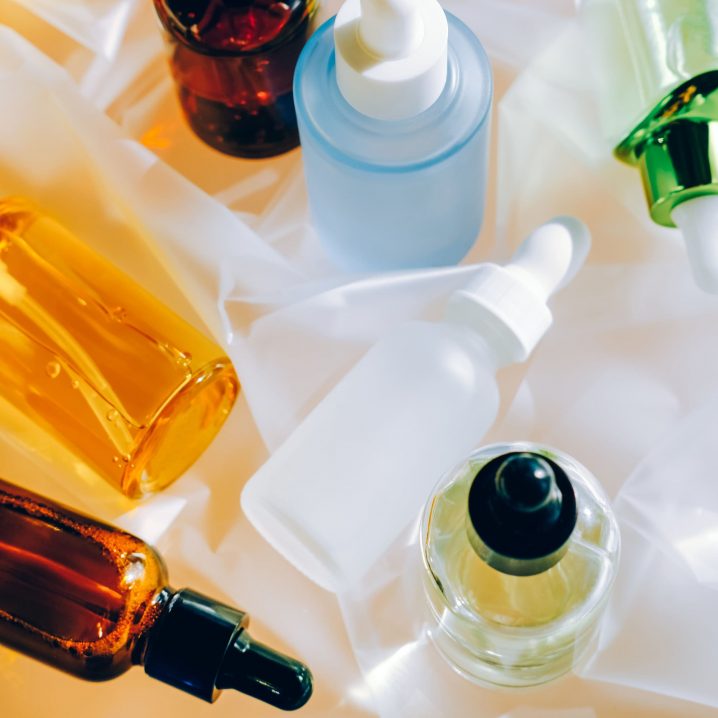
- POPSUGAR Australia
- Beauty
- Are Dermatologist-Owned Brands the New Celebrity Lines?
Are Dermatologist-Owned Brands the New Celebrity Lines?

If 2020 (and 2021 . . .) was the year of the celebrity-owned beauty brand, 2022 is shaping up to be one for dermatologists. For the last few years, you couldn’t go to a beauty retailer without seeing a famous face plastered on the shelves. Now, there’s a new kind of brand founder joining the skin-care market in masses – and they come with years of expertise.
To be clear, it’s not that dermatologist-owned brands are new: acclaimed dermatologist Howard Murad founded Murad Skin Care in 1989, followed by late dermatologist Fredric Brandt’s Dr Brandt Skincare in 1995, dermatologist Dennis Gross’s Dr Dennis Gross Skincare in 2000, and a handful of others throughout the years. It’s that, until recently, the number of MD-owned lines seemed small in comparison to the number of beauty brands out there today (approximately 114,841 in the US as of 2022).
All that is changing. In the last few months alone, there’s been an uptick in derm-owned brands, especially as major retailers like Sephora and Ulta Beauty have expanded their selection of expert-backed products.
Just this month, for example, there’s been the launch of Dr. Whitney Bowe Beauty, created by dermatologist Whitney Bowe, MD, with a combined inner and outer approach to skin care. Then in May came Jori Skincare, which was created by dermatologist Joshua Zeichner, MD,’s wife Cori as a doctor-formulated adult acne brand, of which he serves as the medical advisor. Back in April, dermatologist Angela Casey, MD, founded Bright Girl, a skin-care brand designed specifically for teens. In March, dermatologist Anthony Rossi, MD, launched Dr. Rossi Derm, MD with a five-piece debut collection. And that’s only the beginning.
Surely if anyone is qualified to launch a skin-care brand, it’s dermatologists – people who’ve spent up to 13 years studying, training, and treating various skin conditions and concerns. They know the ins and outs of the industry and can answer even the most complex skin questions, offer tried-and-true product recommendations, and lend advice for preventing fine lines, correcting hyperpigmentation, treating acne, and so on. It’s certainly why this new trend only makes sense.
“I’m a practising board-certified dermatologist, but I am also a research scientist,” Dr Bowe tells POPSUGAR. “I’ve published over 40 peer-reviewed scientific publications and book chapters, and I’ve lectured internationally, presenting my research at numerous scientific conferences throughout the world.”
Still, why the rise in brand launches now? Social media might have something to do with it, as many dermatologists are on Instagram and TikTok and have amassed huge followings on the apps. TikTok especially has become quite the playground for beauty lovers, but with it comes the risk of misinformation spreading rapidly. You’ll find doctors debunking myths, clearing up rumours, and delivering solid, science-backed advice, and their followers can’t seem to get enough.
For decades, many skin-care brands have claimed to be “dermatologist-tested,” which can mean they consulted with a doctor on either formulation, safety, or efficacy, but there’s no legal procedure behind the claim and the meaning can vary. When it’s the doctor formulating the products themselves, on the other hand, it creates a new level of trust with the consumer: “When I say science-backed skincare, I feel like it could be very buzzy – you can sound very marketing,” Dr Bowe says. “But I take that very seriously because, as a research scientist trained in clinical studies, epidemiology, biostatistics, I take my testing protocols very, very seriously.”
You also know you’re getting the best ingredients and formulations, vetted by true industry insiders through years of research and experience with patients. For Jori Skincare, Dr Zeichner says it took more than three years of development and testing to get the ingredients just right.
Given the shortage of dermatologists in the US – studies have estimated that there are about 3.3 derms per every 100,000 people – selling products to the masses offers a level of access to an expert that someone might not get otherwise. On the flip side, however, these high-quality formulations often come at a steep price. On average, you can expect to pay compared to most luxury brands on the market; a dermatologist-owned face cream can cost you anywhere between $60 to $360, for example, depending on the brand and what exactly you’re looking for.
The truth is, there is big money to be made in skin care – and people are willing to pay for results. According to the Statista Research Department, in 2020 alone, the global skin-care market generated around $136.4 billion, with the US bringing in the most revenue. That’s why, if you’re looking to re-up your serum, choosing to buy from a dermatologist-owned brand is a safe – and increasingly popular – option. So long as you can justify the price point.


